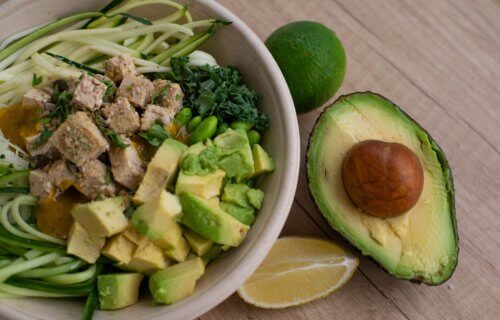SAN DIEGO — People who regularly eat avocados tend to have a lower calorie intake and consume healthier food, according to new research. While now trendy in hipster cafes and Instagram culture, the benefits have been shown to outweigh its reputation as a fatty food.
Indigenous to Central and South America, avocados have long been a staple for over 3,000 years. They have high levels of oleic acid (a monounsaturated fat), making it beneficial for individuals whose diets are not high in animal fats (meat, dairy, fish). It also has good levels of B vitamins, vitamin C, vitamin E and potassium.
In this latest study, families who consumed 14 avocados weekly over six months reported significant beneficial health effects. Researchers say the 72 Mexican families, or 231 individuals, who participated found eating more avocados appeared to speed the feeling of fullness after eating. They also reduced their weekly consumption of processed meat, chicken and eggs, compared to families who ate three or less avocados each week.
“Data regarding the effects of avocado intake on family nutritional status has been non-existent,” says co-author Dr. Matthew Allison, professor and chief of preventive medicine in the University of California San Diego School of Medicine, in a statement. “Recent trials have focused on individuals, primarily adults, and limited to changes in cardiometabolic disease blood markers. Our trial’s results provide evidence that a nutrition education and high avocado allotment reduces total caloric energy in Mexican heritage families.”
But surprisingly, those who ate the most of the fruit also recorded decreased intake of some key nutrients, including calcium and vitamin D, which researchers said might be associated with eating less.
“Our results show that the nutrition education and high avocado intake intervention group significantly reduced their family total energy intake, as well as carbohydrate, protein, fat (including saturated), calcium, magnesium, sodium, iron, potassium and vitamin D,” notes co-author Dr. Lorena Pchego, of the Harvard T.H. Chan School of Public Health. “In secondary energy-adjusted analyses, the nutrition education and high avocado allotment group significantly increased their intake of dietary fiber, monounsaturated fatty acids, potassium, vitamin E and folate.”
The authors suggest future studies conduct similar trials on avocado consumption in other cultures and populations.
The study is published in the journal Nutrients.
South West News Service writer Joe Morgan contributed to this report.
